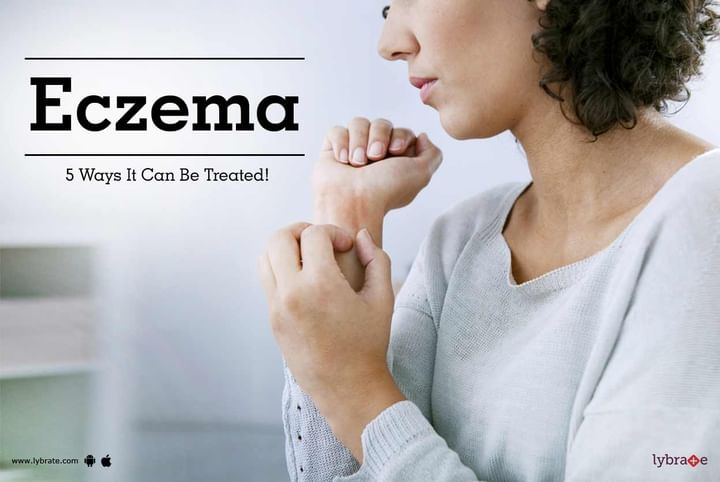Eczema - 5 Ways It Can Be Treated!
Eczema is a skin condition which is characterized by rough, cracked, red, itchy and inflamed skin. Sometimes it can also cause blisters. Eczema is also known as atopic dermatitis. It is a severe condition which starts during infancy and can go on throughout childhood. While some people may outgrow this condition, the rest might have it till adulthood.
Causes of Eczema:
1. Irritants- Certain irritants found in vegetables, meats, juices extracted from fresh fruits, disinfectants, shampoos, detergents and soaps can cause eczema.
2. Allergens- Dandruff, mold, pollens, pets and dust mites can also contribute to Eczema.
3. Microbes- Certain bacteria such as Staphylococcus Aureus, fungi and viruses can also cause eczema
4. Food products- Many people are allergic to food products such as wheat, soy products, seeds, nuts, eggs and dairy products. This might contribute to Eczema.
5. Stress- This doesn’t cause eczema but can aggravate the symptoms of it.
6. Hormones- Women usually experience worsening of Eczema during certain stages of their menstrual cycle or during pregnancy.
Symptoms of eczema in infants and children:
1. Rashes appearing on the cheeks and scalp
2. Rashes which bubble up before fluid discharge
3. Rashes which cause itchiness and lead to disturbed sleeping; continuous scratching and rubbing can result in skin infections
4. Rashes which can appear behind the creases of the knees and the elbows; these rashes are also common on the legs, creases of the buttocks, ankles, wrists and neck.
Symptoms of Eczema in adults:
1. Rashes on the nape of the neck
2. Rashes on the eyes, face and neck
3. Rashes that can cause extremely dry skin
4. Extreme discomfort caused due to itching
5. Scaly skin caused due to rashes
6. Rashes which can result in skin infections
7. Lichenification, a condition wherein the rashes thicken and develop knots, is also a possibility.
How is Eczema treated?
1. Topical ointments and corticosteroid creams- These are anti-inflammatory medications which relieve symptoms of eczema such as itchiness and skin inflammation.
2. Antibiotics- These are usually prescribed if there is any underlying bacterial skin infection.
3. Antihistamines- These mainly reduce scratching at night. In some cases, it can also cause drowsiness.
4. Topical calcineurin inhibitors- This is a drug that suppresses activities of the immune system. It helps to prevent flare-ups and decrease inflammation.
5. Barrier repair moisturizers- These types of moisturizers repair the skin and reduce water loss from the skin.
In case you have a concern or query you can always consult an expert & get answers to your questions!



+1.svg)
